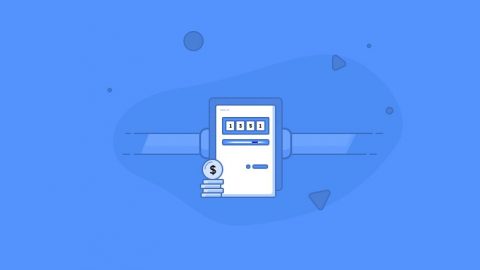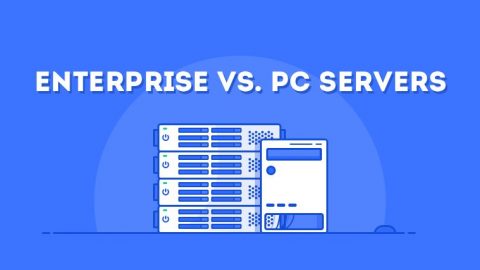We’ve all heard the legends about hot new startups being founded in a garage or a college dorm room by bootstrapping entrepreneurs with no money and big dreams. Perhaps it’s no surprise that a lot of startups launch their first website on a shared hosting account — and after all, why shouldn’t they?
Shared hosting is a great option for those who are just starting out because it’s cheap and cheerful without requiring too much expertise on your end. It comes with just enough of the bare essentials to get your MVP (minimum viable product) website up and running.
But for your startup to be successful in the long-term, it will need to expand. You’ll need to strengthen your infrastructure, invest in more resources and prepare to deal with the inevitable traffic spikes as your startup takes off and begins to build a reputation.
When your startup should upgrade to a dedicated server
Each startup has different hosting requirements and so there’s no catch-all answer for this. The truth is that it depends upon the needs of your website or application, and some setups are more complicated than others.
Still, if your server isn’t cutting the mustard then you’ll start to see the symptoms. These are the three main signs to look out for:
1. Slow speeds
If your website used to be fast and has started to slow down then it’s a good sign that your server is struggling to supply it with enough resources. Your website should load in four seconds at the most, and switching to a dedicated server can provide it with a solid infrastructure to load up as quickly as possible. You’ll also get more storage space and bandwidth, as well as a unique IP address.
2. Multiple websites
If you’re running more than one website on a single shared hosting account, you’re going to start to see sluggish performance. The worst case scenario is that all of your sites could go down because they’re competing with each other for resources. That’s why it’s a good idea to use a single dedicated server to more easily manage them and to allocate their resources more evenly.
3. Visitor increases
If you’re getting more and more traffic to your site over time then that’s a good thing because it shows that your business is growing. The problem is that as more and more visitors make their way to your site, more and more resources will be required. There will inevitably come a time when a shared hosting plan will no longer be enough.
The benefits of a dedicated server
Now that you know why you might need to leave your shared hosting plan, it’s time to take a look at some of the benefits of using a dedicated server. True, running a dedicated server isn’t always easy, but that’s where managed hosts like EuroVPS come in.
A managed host will manage and monitor your dedicated server on your behalf, leaving you to reap the rewards of more powerful web hosting.
Speaking of rewards, here are the five main benefits of using a dedicated server.
1. Absolute control
With a dedicated server, you don’t have to share it with anyone else. That means your sites won’t be slowed just because someone else’s website is experiencing a traffic surge, and you won’t find yourself fighting them for resources.
Having absolute control over the server also means that you can customise the setup by enabling or disabling functionality, running firewalls and antivirus software and running firmware updates, amongst other things.
2. Dedicated support
Because dedicated server hosting is more expensive than shared and other types of hosting, the vast majority of providers take the time to hire and train top quality customer service teams to solve any problems that you might have.
Be sure to check what support a potential dedicated host offers so that you’re sure they’re in a place to help you, and consider going with a managed host if you don’t want to take on the tricky tasks of maintaining the server and ensuring that it’s running at optimum speed at all times.
3. Increased speed
You’ve probably guessed this one because slow speeds were one of the key reasons for switching in the first place. Still, it’s worth repeating because “increased speed” is an understatement. We’re talking super-fast speeds, like taking a website from a shared server and strapping it to a rocket.
Fast speeds are important because internet users are impatient. In fact, a one second delay can lead to a 7% drop in conversion rate. Luckily, switching from shared hosting to a dedicated server can help to negate that, and for larger sites it can even pay for itself by simply boosting the number of transactions that are carried out on your website.
4. Increased security
Shared hosting servers are notoriously insecure, and this can cause a problem if you’re storing valuable data or information. If you’re an ecommerce company, for example, then you’re putting your customers’ information at risk if you store it on an unsecured shared server.
Server security should be paramount, and a dedicated server is inherently more secure because you’re the only person using it. And if something does go wrong, it’s easier to narrow down the problem because you’re the only person who’s been making changes.
5. Resource intensive applications
If your app or website is continuously expanding and gobbling up more resources or if you’re starting to host downloads and video content, it’s eventually going to slow to a stop. When that happens, a dedicated server can help you to keep the site going without sacrificing functionality.
If your site is high trafficked and it’s hosting large files then it can decrease your overall performance and even lead to you getting blacklisted by a shared hosting provider. A dedicated host will go out of their way to make sure that you have the infrastructure you need for your site to run as its supposed to run.
Conclusion
Not every website needs a dedicated server, but when you reach a certain size then it becomes the obvious choice. After all, a dedicated server is simultaneously more powerful and more customisable than other types of hosting, and that gives you full control over your site’s performance.
Just remember that managing a dedicated server isn’t always easy, and if you don’t have the technical knowhow it can be a good idea to opt for a managed host. They’ll run the server on your behalf, updating software, taking regular backups and answering any questions that you have. That then gives you the breathing room you need to take your website to the next stage of its evolution. Good luck.



